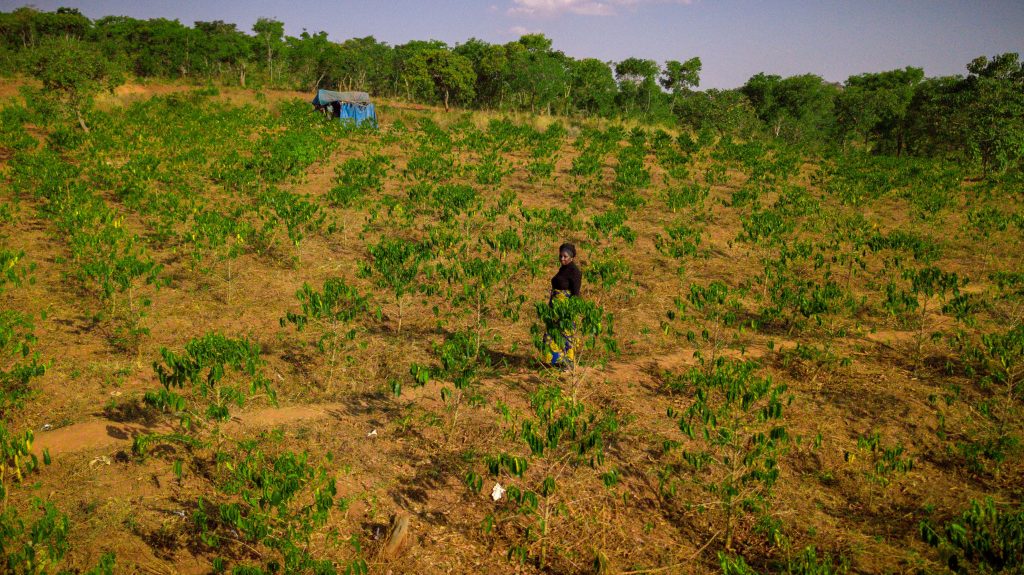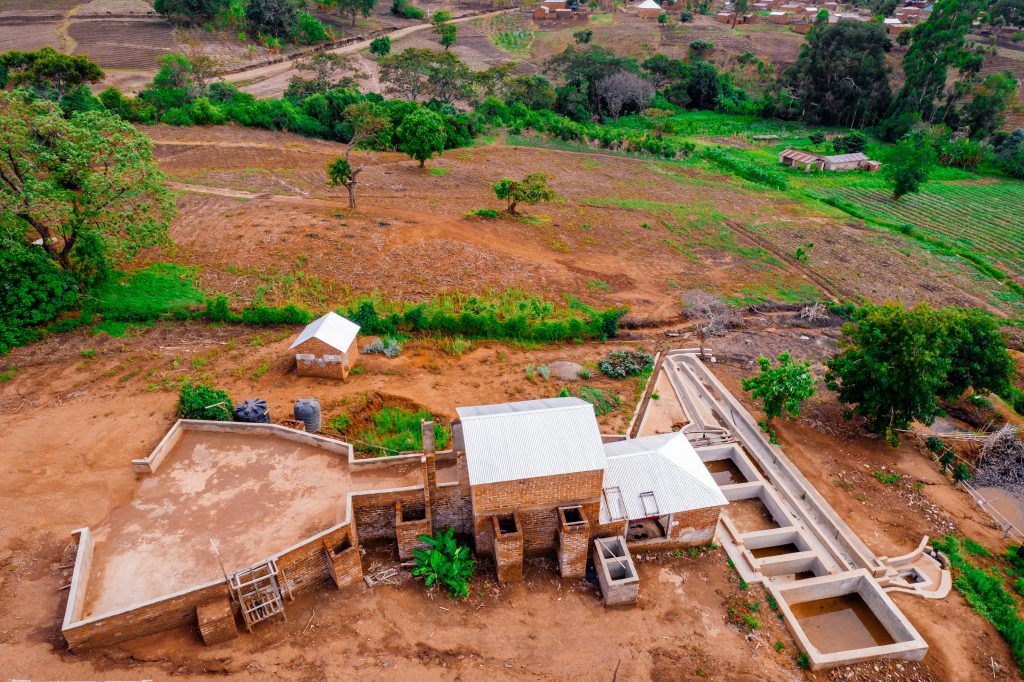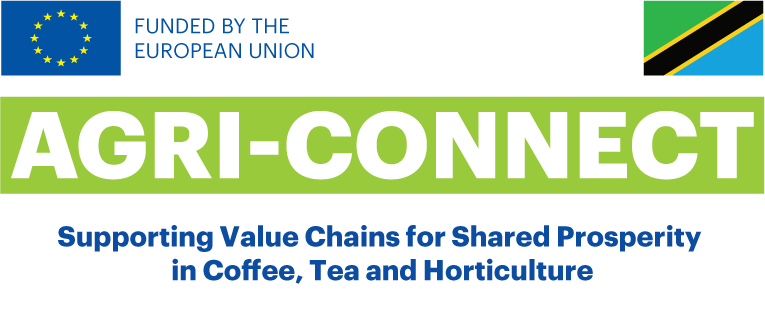
VIDEO: Enhancing Coffee Productivity and Livelihoods in Tanzania’s Southern Highlands: The Impact of CODE-P
Smallholder coffee farmers in Tanzania’s Southern Highlands are experiencing a significant transformation in productivity, income, and sustainability, thanks to the support of the Smallholder Coffee Development Programme (CODE-P), implemented by Vi Agroforestry under the funding from the European Union. As one of Tanzania’s key export crops, coffee is central to the livelihoods of millions, but its production is currently facing challenges. CODE-P offers solutions through training, empowerment, and improved market access, helping farmers overcome barriers and boost the sector’s long-term viability.
Coffee as a Key Economic Driver
Coffee is a major export crop for Tanzania, supporting approximately 2.4 million people, including farmers, laborers, and those in processing and marketing. While the Southern Highlands offers favorable conditions for coffee cultivation, productivity in the region remains low, particularly when compared to other parts of Tanzania. Farmers here often work with coffee trees that are more than 25 years old, struggling with reduced yields and declining tree health.
Many farmers face challenges such as limited access to credit, lack of affordable inputs like fertilizers, and a lack of access to profitable markets. As a result, the income from coffee sales is often insufficient to make the necessary improvements to boost productivity. Moreover, the future of coffee farming in the region is threatened by the reluctance of younger generations to engage in the sector under these challenging conditions.
Empowering Smallholder Farmers through CODE-P
Vi Agroforestry’s CODE-P programme is designed to address these issues by providing smallholder coffee farmers with the training, resources, and market linkages they need to improve productivity and resilience. With the support of over 90 Agricultural Marketing Cooperative Societies (AMCOS), CODE-P has engaged more than 24,000 farmers in sustainable farming practices that enhance both productivity and environmental resilience.
Farmers are trained in climate-smart agriculture, agroforestry, and sustainable land management techniques that improve coffee yields while promoting soil health, water conservation, and biodiversity. These practices not only increase the resilience of farming systems to climate change but also help farmers improve their livelihoods by producing higher-quality coffee.
Women and youth have been a particular focus of the programme, with targeted efforts to encourage their participation in the coffee sector. By promoting a generational shift, CODE-P is creating opportunities for youth to find meaningful, sustainable employment in agriculture, which in turn strengthens the future of Tanzania’s coffee industry.

A smallholder farmer supported by CODE-P project at her coffee farm in Mbinga, Ruvuma region.
Strengthening Market Linkages and Enhancing Coffee Quality
In addition to training in sustainable farming practices, CODE-P has helped farmers strengthen their market linkages, ensuring they receive fair prices for their produce. The programme has facilitated the establishment of modern coffee processing facilities, enabling farmers to process their coffee to a higher standard and improve competitiveness in both local and international markets. These facilities have played a key role in raising the value of the coffee produced in the region, benefiting farmers with higher income from better-quality products.
Key Achievements from Phase I of CODE-P
Phase I of the CODE-P programme, which ran from mid-2020 to mid-2024, has already yielded impressive results, thanks to funding from the European Union and collaboration with partners such as BRAC International, the Agricultural Non-State Actors Forum (ANSAF), the Tanzania Coffee Research Institute (TaCRI), and Café Africa Tanzania.
Some of the notable achievements include:
- Farmers Reached: 24,753 farmers were engaged, surpassing the initial target of 24,000. Of these, 7,391 were women, and 12,980 were between the ages of 18 and 35, demonstrating strong youth involvement.
- Cooperatives Engaged: 92 Agricultural Marketing Cooperative Societies (AMCOS) participated in the programme, exceeding the initial target of 60. More than a third of these cooperatives accessed loans to support their businesses.
- Coffee Seedling Production: 60 coffee multiplication nurseries were established, producing climate-resilient coffee seedlings with a remarkable survival rate of 93%. These nurseries also functioned as training hubs for farmers.
- Agroforestry Trees Distributed: Over 283,000 agroforestry trees were distributed and planted by farmers. These trees play a crucial role in improving soil quality, controlling erosion, enhancing pest control, providing shade for coffee trees, and boosting climate resilience. Additionally, the trees contributed to food security by providing firewood, fruits, and other resources.
- Increased Coffee Productivity: The average productivity of clean coffee increased by 20%, from 0.4 kg per tree to 0.55 kg per tree, thanks to improved farming practices and inputs.
- Higher Coffee Prices: The price of clean coffee rose from $2.76 per kg in the 2020/21 season to $3.08 per kg in the 2023/24 season, marking a significant increase in value. Export volumes from the programme regions also rose by a third.
- Improved Nutrition: Over half of the farmers involved in the project integrated nutritional food crops, such as legumes, bananas, vegetables, and fruits, into their gardens. This helped improve the nutrition of their families, diversifying food sources and increasing food security.
- Income Growth: Per capita income increased by 65% in the target regions of Mbeya, Ruvuma, and Songwe, largely attributed to enhanced coffee production, better post-harvest processing, and improved market and financial linkages.
- Policy Influence: The programme influenced key policy discussions at both local and national levels, with several commitments from policymakers aimed at improving the coffee sector. These changes were informed by comprehensive policy and budget analyses conducted during the project.

One among many constructed Coffee Processing Units in the CODE-P areas of project implementation in the Southern Highlands.
Looking Ahead: CODE-P’s Lasting Impact
The success of Phase I of CODE-P is a testament to the power of collaboration, sustainable agriculture, and the active involvement of farmers in improving their own livelihoods. As the programme moves into Phase II, it will continue to build on these achievements, expanding its reach and deepening its impact on the coffee sector in Tanzania’s Southern Highlands.
By empowering smallholder farmers with the skills, resources, and market access they need to succeed, CODE-P is helping ensure that the future of Tanzania’s coffee industry is not only viable but thriving. The programme’s focus on sustainability, climate resilience, and inclusive growth is setting the foundation for a prosperous coffee sector that benefits both farmers and the broader economy.
In conclusion, CODE-P represents a model of how targeted interventions in agriculture can drive substantial positive change. Through improved productivity, enhanced income, and better market access, smallholder coffee farmers in Tanzania’s Southern Highlands are not only transforming their own lives but also contributing to the growth of one of the country’s most important industries. With continued support, the programme holds the promise of a sustainable and prosperous future for Tanzanian coffee farmers and their communities.
This post is produced with the financial support from the European Union through AGRI-CONNECT Programme. Its contents do not necessarily reflect the views of the European Union.
This article and video is republished from Vi Agroforestry website. Read the original post here.

